2024-07-16
The Europe-China Tourism Dialogue, recently held in Budapest, Hungary, successfully brought together experts to discuss the theme “Artificial Intelligence Enhances the Competitiveness of the Tourism Industry – Big Data Drives Sustainable Tourism Development”. The following is a summary of the key dialogues from the event.
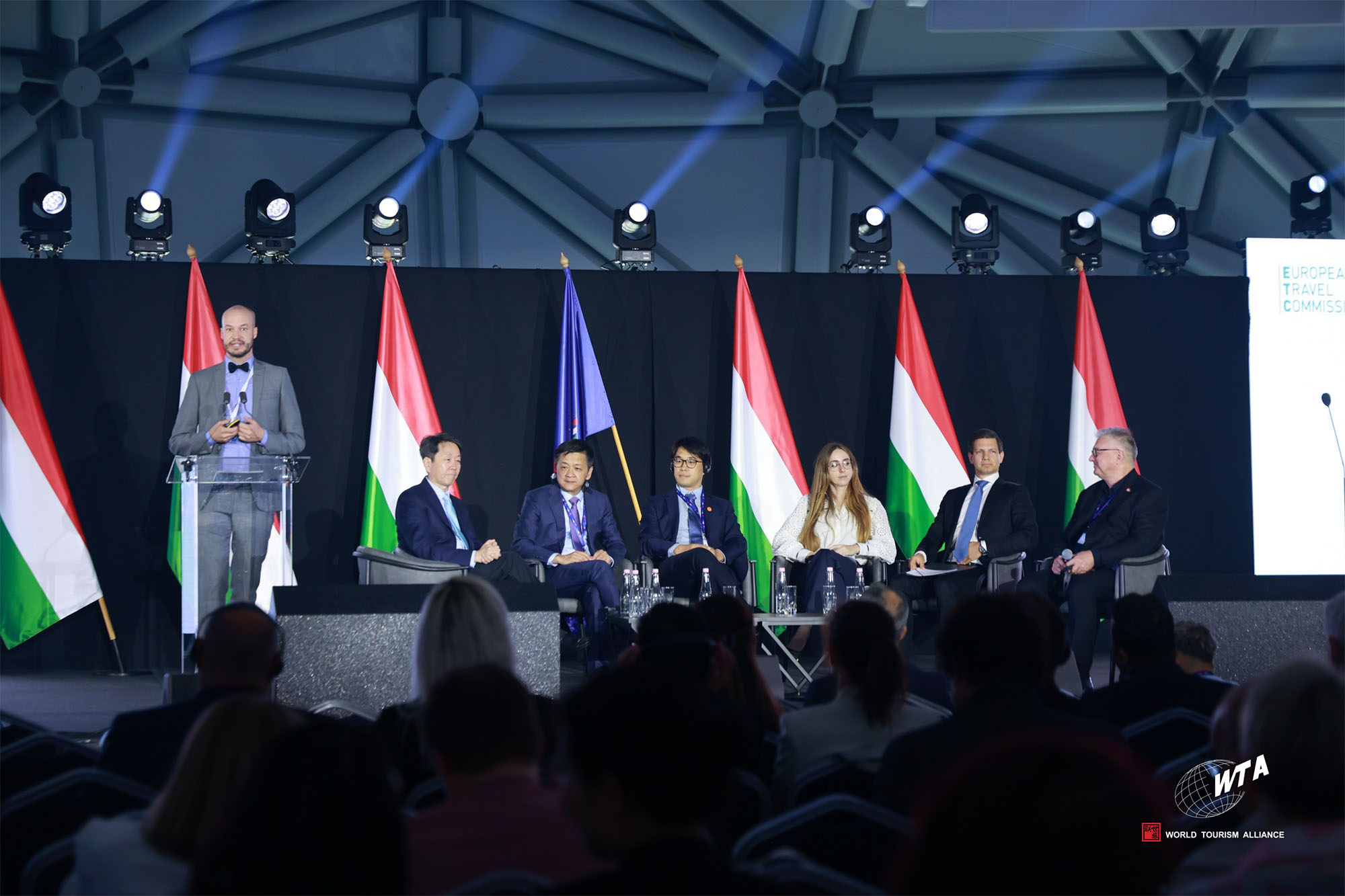
Moderator: Mr. Magnus HESSBO, Senior Advisor and Program Lead of Group NAO
Panelists:
Mr. JIANG Lieyi, CEO of Future Plus Technologies (Beijing) Co., Ltd.
Mr. George CAO, Co-founder and CEO of Dragon Trail International
Mr. TONG Teng, Vice President of Fliggy
Ms. Marlène BARTES, Policy Officer in charge of Tourism at the European Commission (DG GROW)
Mr. Olivér CSENDES, CEO of Visit Hungary
Mr. Alexander RAYNER, Chief Executive Officer at SmartData.travel Limited
Dialogue Transcript:
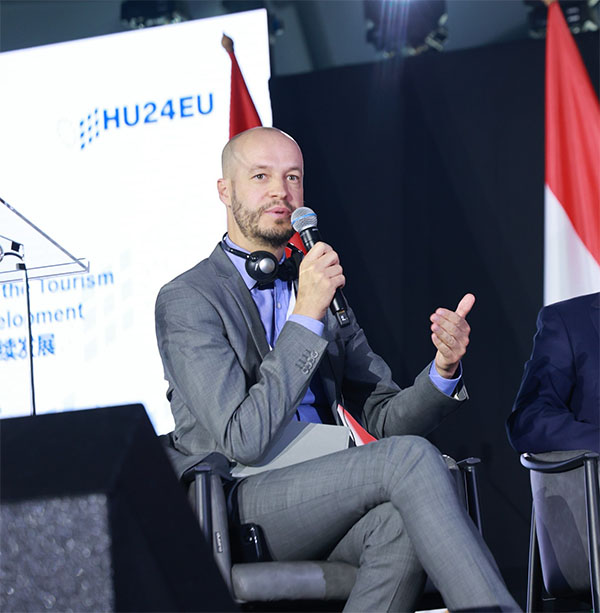
Moderator: The technological revolution brought about by AI will have a profound impact on the travel and tourism industry, akin to the advent of smartphones. What do you see as the greatest potential in the tourism industry?
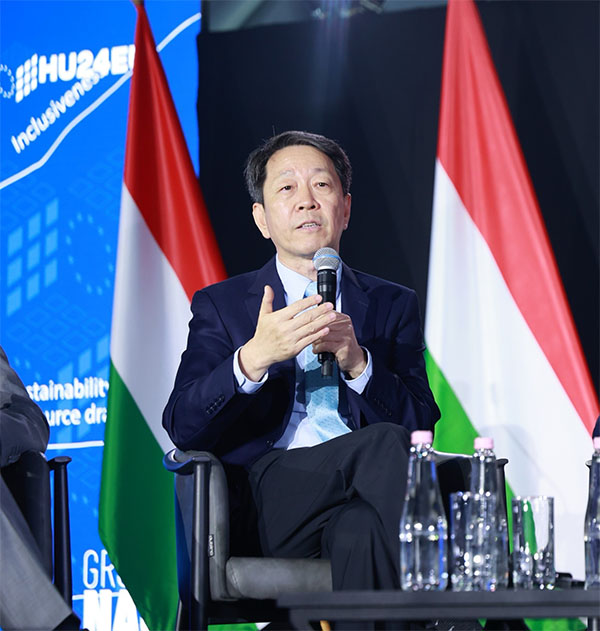
Mr. George CAO: AI technology will not only achieve breakthroughs in individual areas but will also permeate every aspect of the tourism industry. Specifically, two user experiences might be revolutionized. First is the search experience. Current search mechanisms are still imperfect, requiring users to filter through information themselves. AI applications can provide more precise answers, leading to a disruptive change in the tourism search experience. Marketers need to adapt to this change and utilize new consumer search behaviors for effective marketing. Secondly, the creation of commercial content will be transformed. AI-generated video content, not just limited to text and images but also including videos and 3D models, will become commonplace. Tourism professionals need to familiarize themselves with all available tools and learn to combine voice cloning, lip-syncing, and post-production tools for content creation.

Mr. Alexander RAYNER: AI’s performance in daily applications is still below expectations due to data completeness and quality issues. Privacy and data security concerns pose significant threats to businesses and governments, attracting regulatory attention. Only a few countries, including China, are exploring AI regulation. The EU is advancing its “AI Act”, expected to be fully implemented by 2026. The US, Canada, India, South Korea, the UK, and Australia are also active pushing for legislation. However, globally, we still face numerous challenges, especially in cybersecurity. When using AI, we must carefully evaluate risks and benefits to ensure safe and compliant applications.
有限公司首席执行官江烈毅-600.jpg)
Mr. JIANG Lieyi: Structured data is crucial in the generation of smart applications. Governments are increasingly recognizing this. For instance, the Chinese government has made significant achievements in AI regulations, data protection, and trading. Particularly, China’s initiative to consider data as an asset and include it in corporate balance sheets is crucial for fostering sustainable AI applications. Thus, collaboration between enterprises, regulations, and governments is essential for advancing smart applications in the tourism industry, potentially ushering in a new era.
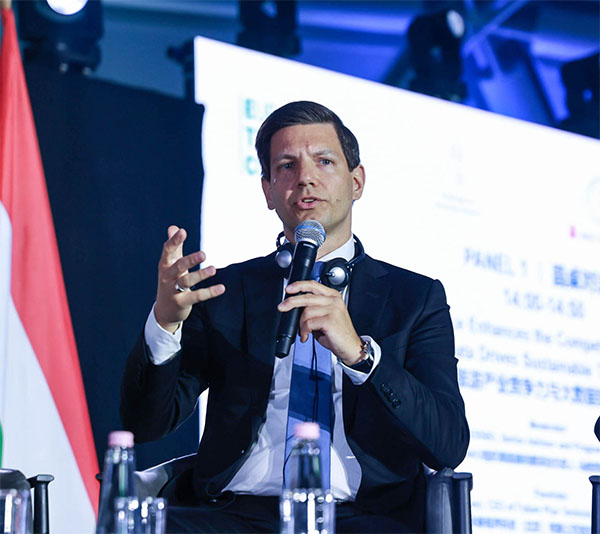
Mr. Olivér CSENDES: The growth in computing power, connectivity, and various interfaces has driven rapid AI development. It is vital to use structured data to train models, which then optimize themselves using unstructured data. Interoperability between different data sources, while adhering to confidentiality and data governance requirements, is crucial for connecting data points. The tourism industry’s open data alliance among European countries is significant for training robust models. Tourism, spanning multiple sectors from transportation to energy, is not just a service but an experience covering the entire customer journey. As we enter a new era in data space, the tourism industry will foster closer collaboration between different sectors and nations.
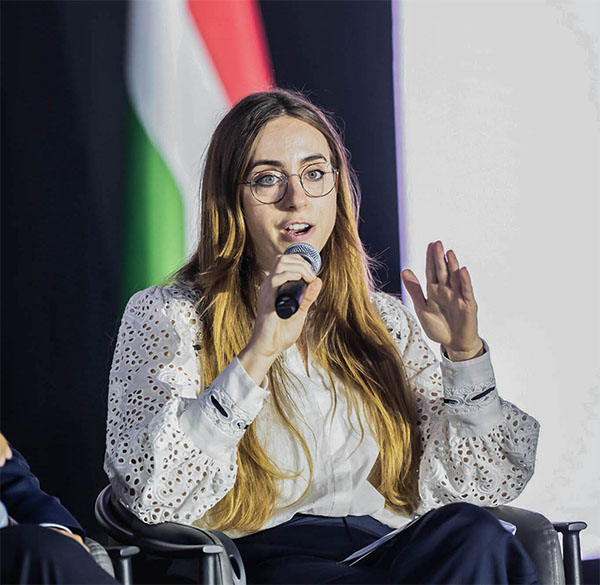
Ms. Marlène BARTES: Data is a core element of machine learning and generative AI, and it has been a long-term focus for the European Commission. In 2020, the EU launched the European Strategy for Data, and we are now advancing the construction of the European Tourism Data Space. Digitalization is a crucial pillar, aiming to create a common data space for tourism in Europe, fostering data sharing and reuse among various stakeholders. We are exploring a governance framework and conducting pilot case studies. Data sharing also involves regulatory and privacy issues. The EU has many regulatory tools, such as the AI Act and the General Data Protection Regulation (GDPR). We hope the EU AI Act can set an example for other countries, ensuring AI brings opportunities, not risks, and keeps humans at the center.
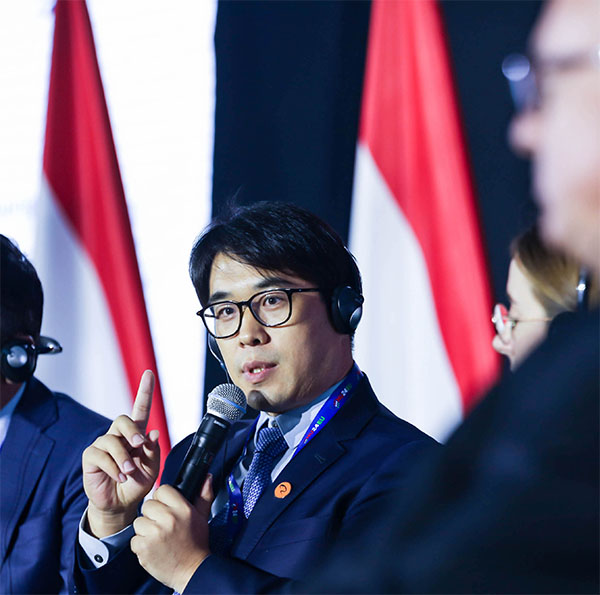
Mr. TONG Teng: As Alibaba’s tourism platform, Fliggy is dedicated to exploring the deep integration of digital technology with the tourism industry and firmly believes that AI is key to driving the future development of tourism. The tourism industry will also provide rich scenarios and possibilities for AI applications. Regarding data usage, several important tasks need to be advanced: Firstly, different industries face differences in data structures and patterns when using AI. For the tourism industry, AI faces challenges in data capture and application. The tourism industry includes multi-modal data such as videos, images, language, and text, all with cultural characteristics, making it more challenging. Therefore, talents with knowledge of both the tourism industry and digital technology will be key to the rapid application and promotion of AI in tourism. Ultimately, the future integration of AI and tourism will not be about pushing products to consumers. Instead, it will focus on providing customized solutions based on consumer needs, satisfying their personalized demands.
Moderator: AI in some ways poses challenges to existing global resources. How can AI be leveraged for sustainable tourism development?
Mr. Alexander RAYNER: At a recent international tourism event in Bangkok, I noticed a thought-provoking phenomenon: the focus was mainly on attracting Chinese tourists, with little consideration on the other way around. This overlooks a critical point: sustainable tourism development is a two-way street, and China is also an important international tourist destination. If Europe can bring its sustainable tourism development experience to China, it will have a positive impact on China’s tourism industry. This critical information is not revealed by AI but is essential. The Hungarian government can enhance its leadership within the EU, promoting tourism flow among member states and achieving sustainable development.
Ms. Marlène BARTES: Small and medium-sized enterprises (SMEs) are the key. Data shows that the EU has over 3.5 million tourism-related businesses, 99% of which are SMEs. Digitalizing all businesses, especially small ones, to enjoy digital benefits requires simplified processes, reduced burdens, and enhanced skills training. A recent study shows that the five major skill shortages in the tourism workforce are all digital skills. Therefore, the tourism industry should accelerate cooperation with educational institutions to train future professionals. This requires expanding funding sources, and the EU has invested heavily in the tourism industry to support digitalization and sustainable development. Currently, the EU has 17 projects planned to support tourism development, including the large research and innovation funding program “Horizon Europe”, which commits €1 billion annually for AI funding projects, and the Single Market Program specifically for SMEs to support their needs in green development and digitalization.
Mr. George CAO: In the entire AI industry, billions of dollars in profits flow to a few top companies that are leading the way in developing and selling hardware to build AI models. For SMEs in the tourism and hospitality industry, we cannot profit directly from AI. Therefore, we should think about how to use AI to stimulate consumer spending and thus increase profits. AI is not a tool for direct revenue but for enhancing core business profits in tourism. Currently, there aren’t enough commercial tools to solve all problems. Entrepreneurs must familiarize themselves with all available business platforms, including some open-source software platforms.
Mr. JIANG Lieyi: AI has fundamental value and faces broad market demand, which is the foundation for the development and expansion of the smart economy. Starting from this fundamental demand, we can see a huge market space. However, there is a gap between the services provided by AI and the expectations of consumers and tourists, and we still need to face and solve many problems. To achieve large-scale deep applications of AI, the core issue is how to verify AI’s capabilities and quality and build trust. To address this core issue, we need to deal with a series of related problems, including data security, algorithm security, and whether AI has specific biases or agendas.
Mr. Olivér CSENDES: AI applications have made significant progress, exemplified by ChatGPT’s rapid adoption, reaching 100 million monthly users in two months. However, a survey by Slack’s Workforce Lab showed that 2/3 of people have not yet tried AI solutions. We need to consider whether consumers and travelers are lagging in adoption due to a lack of awareness, interest, or knowledge. Companies should encourage their employees and industry peers to try AI, providing tool overviews, trial versions, and promoting data protection awareness to motivate users. Additionally, businesses must secure the necessary licenses to use AI tools.
Moderator: Against the backdrop of rapid AI development, while AI may not directly replace humans, those using AI technology seem to have a competitive edge. How do you view the role of AI in enhancing consumer experiences in tourism?
Mr. TONG Teng: There are significant differences in consumer habits and behaviors between Europe and China, with Chinese consumers more willing to embrace new technologies. In discussing the integration of tourism and general AI, consumer feedback and satisfaction are crucial. Initially, we should pilot projects to avoid excessive complexity, as different markets move at different paces. For example, the Chinese market began popularizing mobile payments about 10 to 15 years ago, and Hangzhou is even known as the city of mobile payments. To attract more Chinese tourists to Europe, products and technologies must cater to the Chinese market’s characteristics. For instance, we could trial AI travel assistant services for Chinese market customers, offering information organization, route search, and recommendations to make consumers feel the practical benefits of using AI. In the B2B market, such as airlines or travel companies, AI implementation is easier due to more straightforward scenarios. Thus, B2B market pilots may more effectively promote the application of AI technology and services.